Maintaining proper hydration is an important aspect of prenatal care. During pregnancy, the volume of blood in a woman's body increases, and so does the need for adequate hydration and electrolyte balance. Electrolytes—minerals like sodium, potassium, calcium, and magnesium—are vital for numerous bodily functions, including fluid balance, nerve transmission, and muscle function.
Pregnant women often find it challenging to keep up with their increased hydration needs, especially when dealing with nausea or an aversion to water.
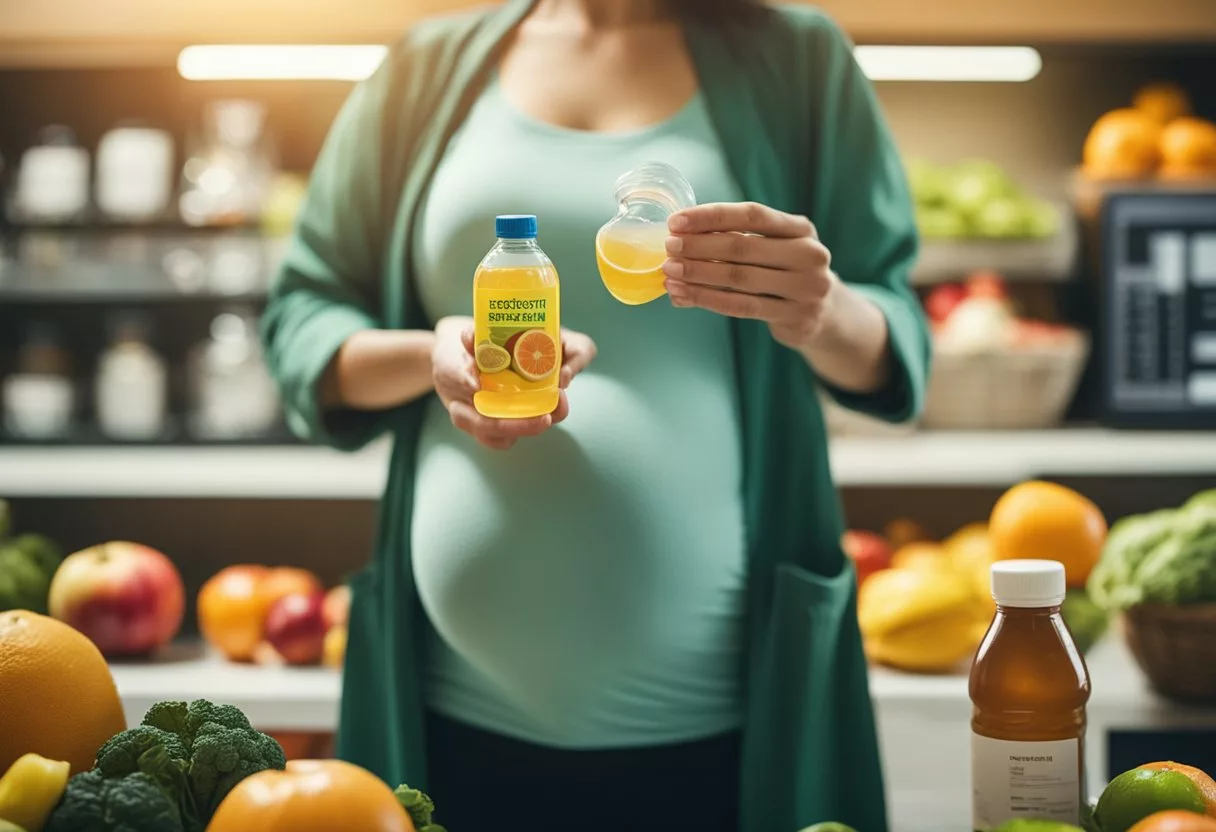
Choosing the right electrolyte drinks during pregnancy can play a significant role in supporting both maternal and fetal health. These drinks can not only help replenish lost fluids and minerals more effectively than water alone but also offer additional nutrients beneficial for pregnancy.
When considering electrolyte drinks for pregnancy, it's important to select beverages that are low in added sugars and free from harmful ingredients, while providing a balanced array of essential electrolytes.
Key Takeaways
- Proper electrolyte balance is essential for managing increased blood volume and hydration needs in pregnancy.
- The right electrolyte drinks can support maternal health and alleviate common pregnancy symptoms.
- It's important to choose electrolyte beverages that are safe and nutritious for pregnancy.
Importance of Hydration in Pregnancy
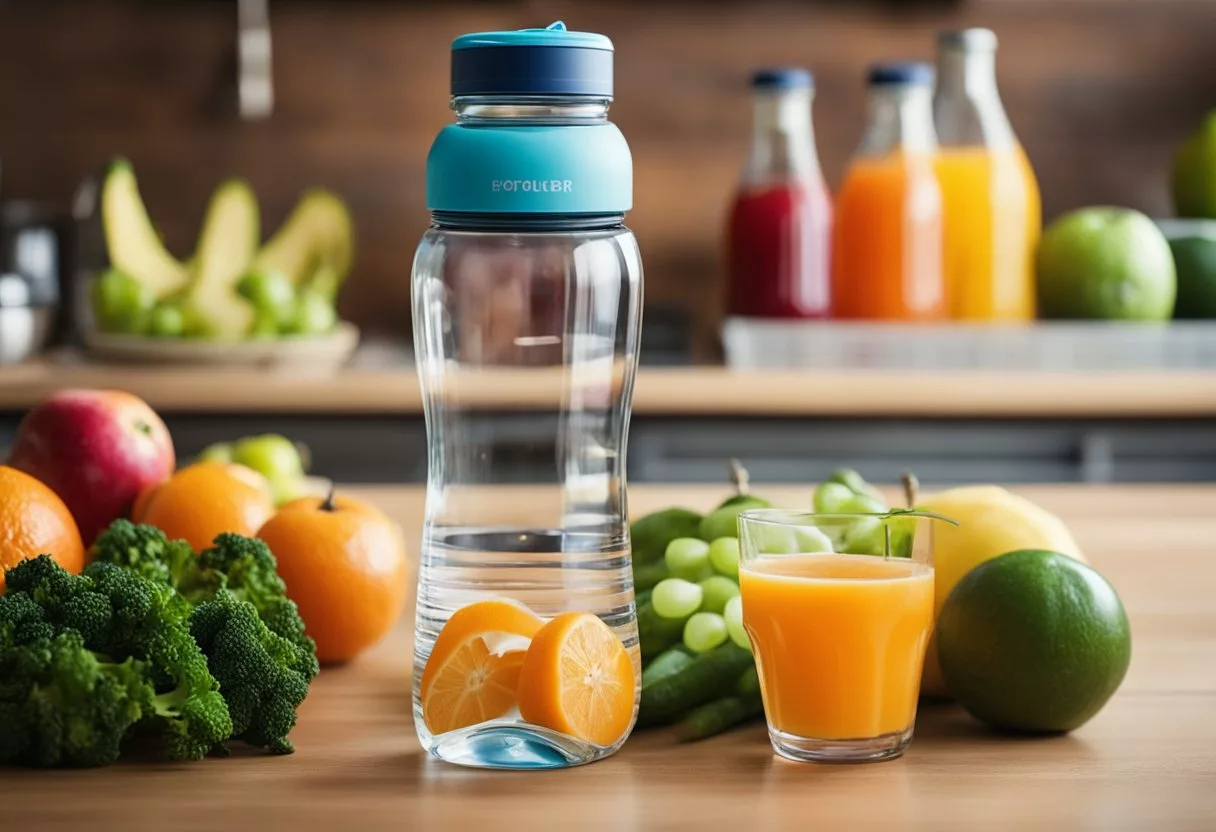
Maintaining proper hydration is critical during pregnancy, not only for the health of the mother but also for the optimal development of the fetus. Adequate fluid intake supports essential physiological changes and the creation of amniotic fluid.
Fluid Balance and Dehydration
Hydration is a delicate balance in the body, where fluid intake must equal fluid loss to maintain overall health. Pregnant women need to consume more fluids than non-pregnant individuals to support their increased blood volume and to aid in the creation of amniotic fluid.
Dehydration can occur quickly during pregnancy due to factors such as morning sickness or increased urinary frequency.
Symptoms of dehydration can include:
- Dry mouth and lips
- Feeling thirsty
- Dark yellow urine
- Dizziness or lightheadedness
Dehydration during pregnancy can lead to serious health complications like:
- Reduced amniotic fluid levels
- Increased risk of urinary tract infections
- Potential contractions and premature labor
Effects on Blood Volume and Amniotic Fluid
The blood volume in a pregnant woman's body increases by up to 50% to support the growing fetus and placenta. This increase requires adequate hydration to ensure blood can effectively transport nutrients and oxygen to the developing baby.
Amniotic fluid is vital for:
- Protecting and cushioning the fetus
- Facilitating fetal movement
- Aiding in the development of the digestive and respiratory systems
To help maintain the recommended blood volume and amniotic fluid levels, pregnant women should be mindful of their water intake. They are advised to drink approximately 2.3 liters (or about 10 cups) of fluids daily from water and other beverages to help meet these increased needs.
Understanding Electrolytes
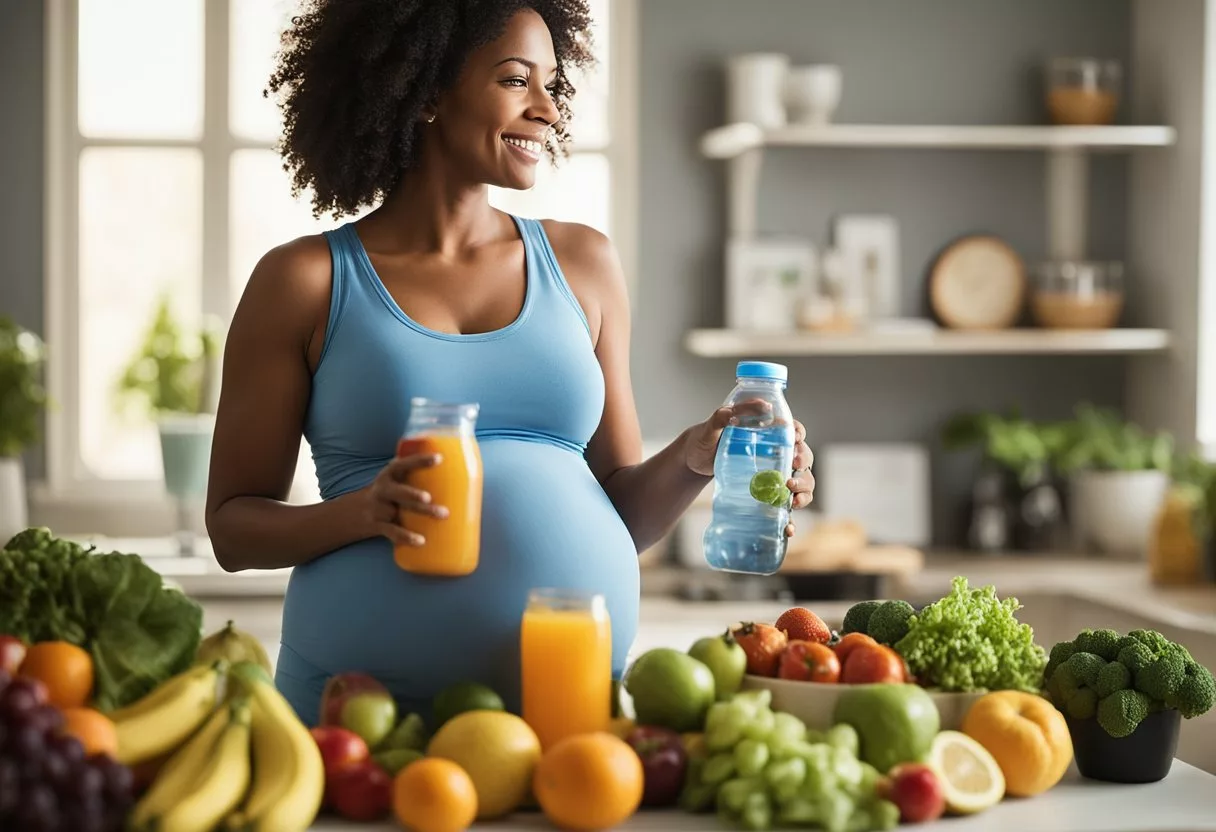
Electrolytes play crucial roles in maintaining bodily functions, and their balance can be affected significantly during pregnancy.
Role of Electrolytes in the Body
Electrolytes are minerals that carry an electric charge and are vital for numerous bodily functions. They include sodium, potassium, calcium, and magnesium. These minerals help to regulate nerve and muscle function, maintain acid-base balance, and keep the body's hydration levels in check.
- Sodium: Essential for muscle contractions and nerve signals.
- Potassium: Regulates heartbeat and muscle function.
- Calcium: Vital for bone health and muscle movement.
- Magnesium: Supports muscle relaxation and energy production.
Electrolyte Imbalance During Pregnancy
During pregnancy, a woman's body undergoes many changes that can lead to an electrolyte imbalance. The expanded extracellular fluid space, the needs of the fetus, and the production of amniotic fluid all contribute to altered electrolyte levels. An imbalance can manifest in various ways, such as swelling, frequent urination, and changes in blood pressure.
- Increased Needs: Pregnancy demands higher amounts of fluids and electrolytes to support the expanding blood volume and the growing fetus.
- Common Imbalances: Pregnant women may experience lower levels of sodium and potassium due to dilution by increased bodily fluids and changes in kidney function.
Recommended Electrolyte Drinks

Electrolyte replenishment is crucial during pregnancy, and there are various drink options available that cater to this need. From natural beverages rich in essential minerals to specifically formulated commercial products and homemade solutions, pregnant women can choose from multiple sources to maintain electrolyte balance.
Natural Electrolyte Sources
Coconut Water: A natural source of electrolytes, coconut water contains potassium, sodium, magnesium, and calcium, making it an excellent choice for hydration.
Milk: It not only provides calcium but also includes potassium and sodium, serving as a nutritious electrolyte drink.
Commercial Electrolyte Drinks
Sports Drinks: Brands like Gatorade and Powerade are popular for their electrolyte content, which can benefit pregnant women in moderation, especially if they are engaging in light exercise.
Electrolyte Powders: These can be mixed with water and offer a convenient way to consume necessary minerals. They often include a tailored blend of sodium, potassium, and other nutrients important for pregnancy.
Homemade Electrolyte Drink Recipes
Homemade Lemonade: Freshly squeezed lemon juice mixed with water, a pinch of salt, and a sweetener like honey can provide a tasty source of electrolytes.
Fruit-Infused Water: Infusing water with fruits such as berries or citrus can add a light flavor and supplemental minerals. Homemade electrolyte drinks allow for controlling ingredient quality and avoiding added sugars found in many commercial options.
Nutritional Considerations for Pregnant Women

During pregnancy, a woman's body requires an increased intake of specific nutrients to support the health of both mother and child. Appropriate consumption of vitamins and minerals, a mindful approach to sugars and sweeteners, and a balance between dairy and plant-based alternatives all play a critical role in prenatal health.
Vitamins and Minerals During Pregnancy
Pregnant women need a range of essential vitamins and minerals to support fetal development and maternal health. Vitamin D, for example, is vital for bone health and immune function, and can be obtained from sunlight exposure, fortified foods, or supplements as recommended in prenatal vitamins. Folic acid is another critical nutrient, required for proper neural tube development and reducing the risk of birth defects. According to dietary guidelines, expectant mothers should ensure adequate intake of:
- Iron: Supports the development of the placenta and fetus and helps prevent anemia.
- Calcium: Essential for building a baby's bones and teeth.
- Magnesium: Helps in bone development and regulates muscle and nerve function.
- Vegetables and fruits provide various vitamins and are a healthy part of prenatal nutrition.
Safe Consumption of Sugars and Sweeteners
Consuming high levels of sugar during pregnancy can lead to health issues such as gestational diabetes. Expectant mothers are advised to limit their intake of sugars, especially from artificial sweeteners and high-sugar drinks. If sweetness is desired, alternatives like stevia or agave may be considered, but moderation is key. Intake should align with medical advice, ensuring that both energy needs and nutritional balance are maintained.
Dairy and Plant-Based Alternatives
Dairy products are an excellent source of calcium and protein, both of which are essential for pregnancy. Cheeses, yogurt, and milk can provide these important nutrients, but it's important to choose pasteurized products to avoid the risk of foodborne illnesses. Plant-based alternatives, such as almond or soy milk, can be suitable substitutes for those who are lactose intolerant or follow a vegan diet, provided they are fortified with calcium and vitamin D. Pregnant women should read labels to ensure these essential minerals are present in adequate amounts.
Managing Common Pregnancy Symptoms

During pregnancy, a woman's body undergoes numerous changes, which may lead to symptoms like nausea and muscle discomfort. Each symptom can be effectively managed with targeted strategies, ensuring a healthier and more comfortable pregnancy journey.
Nausea and Morning Sickness
Morning sickness, characterized by nausea and occasionally vomiting, is one of the most common symptoms experienced during the first trimester.
To manage this, they can:
- Eat small, frequent meals throughout the day to avoid an empty stomach.
- Sip on ginger tea or nibble on ginger biscuits, as ginger is known to help reduce nausea.
- Stay hydrated by drinking fluids between meals rather than during them.
Electrolyte drinks specifically tailored for pregnant women can help maintain hydration and replace lost nutrients due to vomiting.
Muscle Cramps and Swelling
Muscle cramps and swelling are often reported as the body adjusts to increased fluid demands and changes in blood flow.
To alleviate these symptoms, pregnant women may:
- Increase magnesium intake, potentially through a glass of mineral-rich electrolyte drink.
- Practice regular light exercise, like walking or prenatal yoga, to improve circulation.
- Elevate legs when resting to decrease swelling.
A balanced diet and proper hydration play crucial roles in managing these discomforts.
Constipation and Digestive Health
Constipation is a frequent complaint, which may be aggravated by iron supplements.
For better digestive health during pregnancy, they should:
- Consume a high-fiber diet including fruits, vegetables, and whole grains.
- Drink plenty of water throughout the day to aid digestion and stool passage.
- Discuss with a healthcare provider the possibility of modifying prenatal vitamins if they are contributing to constipation.
Including fluids with electrolytes can support the overall fluid balance and help with normal bowel function.
Hydration and Pregnancy Health Conditions
Proper hydration plays a significant role in mitigating the risks of serious pregnancy health conditions, such as gestational diabetes and hypertensive disorders like high blood pressure and preeclampsia.
Dehydration Risks and Gestational Diabetes
Dehydration during pregnancy can be detrimental to both the mother's and baby's health.
It is particularly concerning for those with gestational diabetes, a condition characterized by high blood sugar levels during pregnancy.
Gestational diabetes increases the risk of dehydration due to the excess glucose in the mother's bloodstream. This prompts more frequent urination, leading to a higher loss of fluids.
This loss of fluids, if not replenished, can further exacerbate blood sugar control, making vigilant hydration essential.
Pregnant women should aim to drink adequate amounts of water and consider electrolyte-rich drinks to maintain fluid balance.
Prevention of High Blood Pressure and Preeclampsia
Maintaining hydration is also critical for the prevention and management of high blood pressure during pregnancy.
When a pregnant woman is well-hydrated, her blood volume and circulation are supported, which can help to keep blood pressure levels stable.
In the context of preeclampsia, a serious complication characterized by high blood pressure and signs of damage to another organ system, often the kidneys, adequate hydration is part of the management strategy.
While proper hydration alone cannot prevent preeclampsia, it is an essential component of a comprehensive approach to minimize the risk and manage symptoms.
It is advised for pregnant women to consume fluids regularly throughout the day and include drinks that provide essential minerals.
Practical Hydration Tips
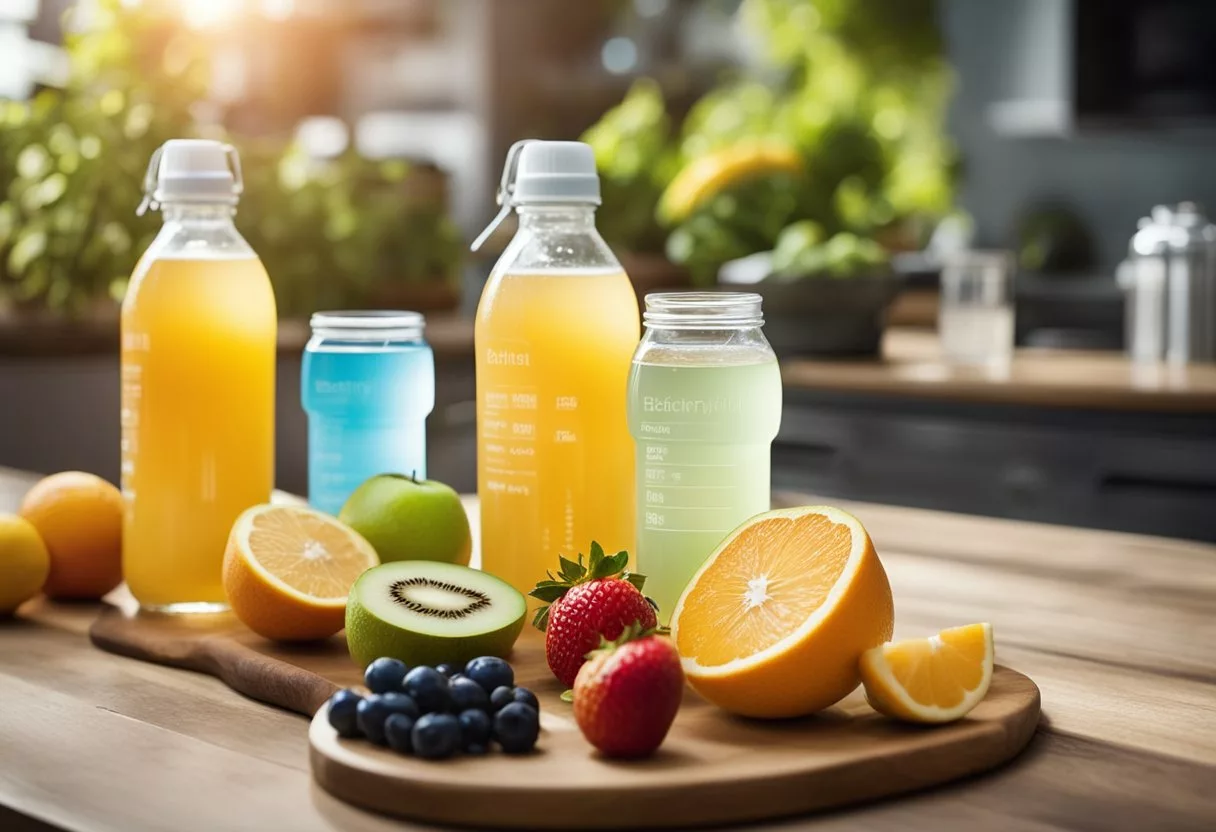
Staying adequately hydrated is crucial for expectant mothers. It's important to understand not only how much to consume but also which types of fluids are most beneficial and when special considerations might be needed.
Daily Water Intake and Fluid Levels
For pregnant individuals, maintaining a consistent water intake is essential to support the increased fluid levels required for both maternal and fetal health.
A simple guideline is to aim for at least 8-10 cups (64-80 ounces) of fluids daily, though individual needs can vary.
It's useful to listen to one's body and drink when feeling thirsty, but also to keep a water bottle handy to encourage regular sipping throughout the day.
Staying Hydrated in Summer and During Exercise
The summer heat and exercise can increase the need for hydrating fluids.
It is recommended to increase fluid intake on hot days or when participating in physical activity to counteract additional fluid loss through sweat.
Hydration before, during, and after exercise is vital, and for summer days, carrying a water bottle and seeking shade or air conditioning can help manage hydration levels.
Beverage Choices and Caffeine Intake
While water is the best choice for staying hydrated, other beverages like juice and herbal teas can also contribute to fluid intake.
However, it's wise to moderate the consumption of caffeinated beverages such as coffee, certain teas, and energy drinks.
Caffeine can increase urine production, which might detrimentally affect fluid levels if not balanced with other hydrating options.
Pregnant women should ideally limit caffeine to less than 200mg per day, focusing on a variety of fluids that contain important electrolytes and are free from additives.
After Pregnancy Care
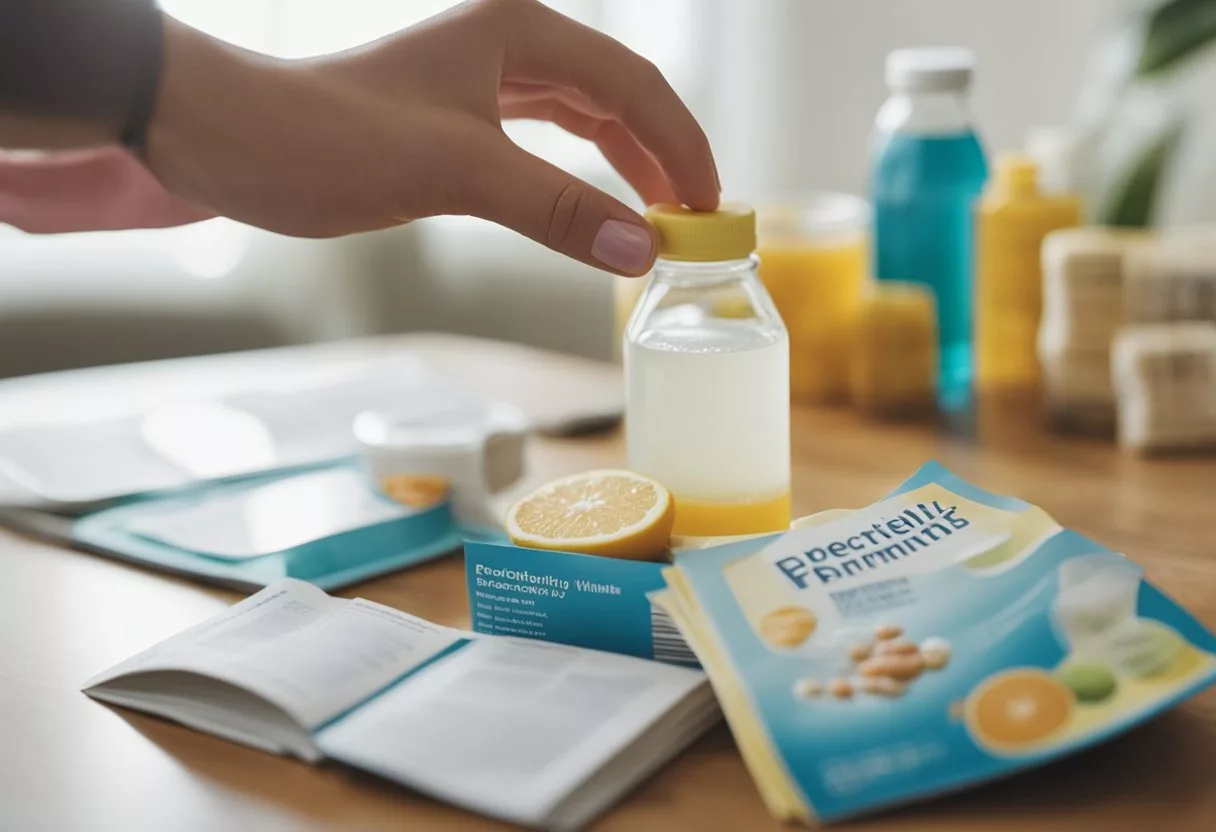
After the arrival of a newborn, the health of the mother remains a priority, with a focus on proper hydration to support recovery and breastfeeding.
Maintaining adequate fluid intake is crucial for postpartum healing and to provide sufficient milk supply during breastfeeding.
Hydration for Breastfeeding Mothers
Breastfeeding mothers should be attentive to their fluid intake, as they are the primary source of hydration and nutrients for their infants.
Hydration is essential for lactation and to keep the milk supply consistent.
The following are simple guidelines for staying hydrated:
- Aim for at least 8-10 glasses of water per day.
- Include hydrating foods such as fruits and vegetables in your diet.
- Limit intake of caffeinated beverages, as they may contribute to fluid loss.
It's important for mothers to listen to their bodies and drink fluids whenever they feel thirsty.
Some mothers may find that consuming electrolyte drinks specifically designed for pregnancy and postpartum can be beneficial for maintaining the balance of electrolytes, especially if they are breastfeeding.
Postpartum Recovery and Hydration
The road to postpartum recovery involves not just taking care of the baby but also self-care for the mother.
Hydration plays a pivotal role in helping the body recover from childbirth.
Adequate fluid intake supports the body's healing processes and is particularly important if the mother experiences blood loss during birth.
To support recovery, consider the following:
- Regular consumption of fluids throughout the day.
- Incorporate a balance of water, milk, and calcium-fortified drinks for bone health.
- Avoid alcohol, as it can dehydrate and impede the recovery process.
Mothers should be aware of their hydration status by monitoring the color of their urine, aiming for a pale-yellow color, which indicates proper hydration. This, in turn, benefits both the mother and the developing infant in the case of expectant mothers or a breastfeeding baby.
Frequently Asked Questions
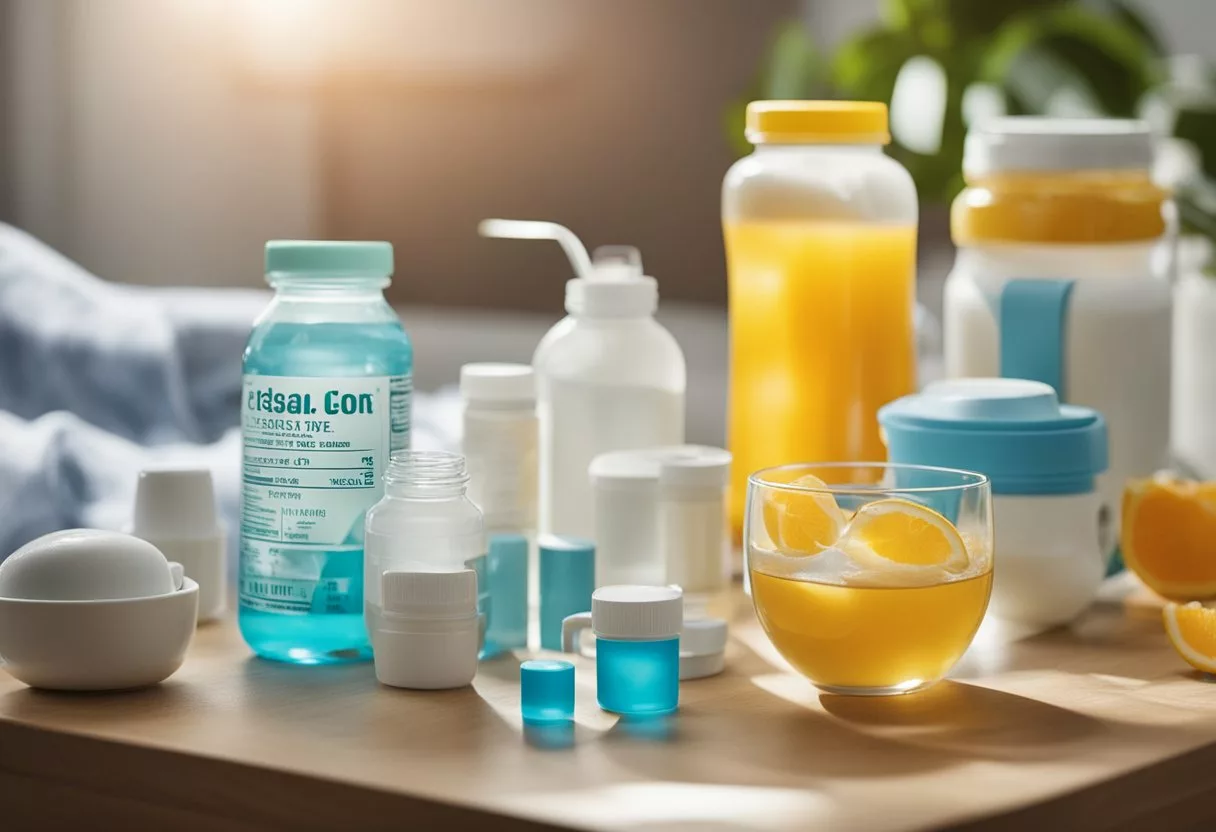
Electrolyte balance is vital for everyone, but it has specific implications during pregnancy due to changes in a woman's physiology. Here's a closer look at commonly asked questions regarding electrolyte consumption when expecting.
What natural electrolyte solutions are recommended for pregnant women?
Natural electrolyte solutions for pregnant women include coconut water, which is a great source of natural electrolytes and low in calories. Watermelon is another hydrating option that provides potassium and vitamin C.
How can one safely make a homemade electrolyte drink suitable during pregnancy?
A homemade electrolyte drink can be made using ingredients like lemon juice, water, salt, and sugar.
It is crucial to use clean, purified water and ensure accurate measurements are used for ingredients to maintain the proper balance.
Are there any electrolyte powders specifically formulated to be safe for pregnancy?
Yes, there are electrolyte powders on the market that are formulated to be safe for pregnancy.
They are made with lower concentrations of electrolytes and free from caffeine, artificial sweeteners, or other potentially harmful substances.
Can Pedialyte be used safely throughout pregnancy for hydration?
Pedialyte can be used for hydration during pregnancy as it is designed to help replace fluids and minerals.
It is important to consult with a healthcare provider before using any electrolyte solutions like Pedialyte.
What characteristics should be considered when choosing an electrolyte drink for labor?
When choosing an electrolyte drink for labor, one should look for options with a balanced electrolyte content and without excessive sugar or artificial ingredients.
Drinks should be non-irritating and easy on the stomach.
What is the safest way to maintain electrolyte balance during the first trimester?
Maintaining electrolyte balance in the first trimester typically involves adequate water intake and a balanced diet containing electrolyte-rich foods.
If electrolyte drinks are required, choose those without high sugar content. Also, consult a healthcare provider for personalized advice.